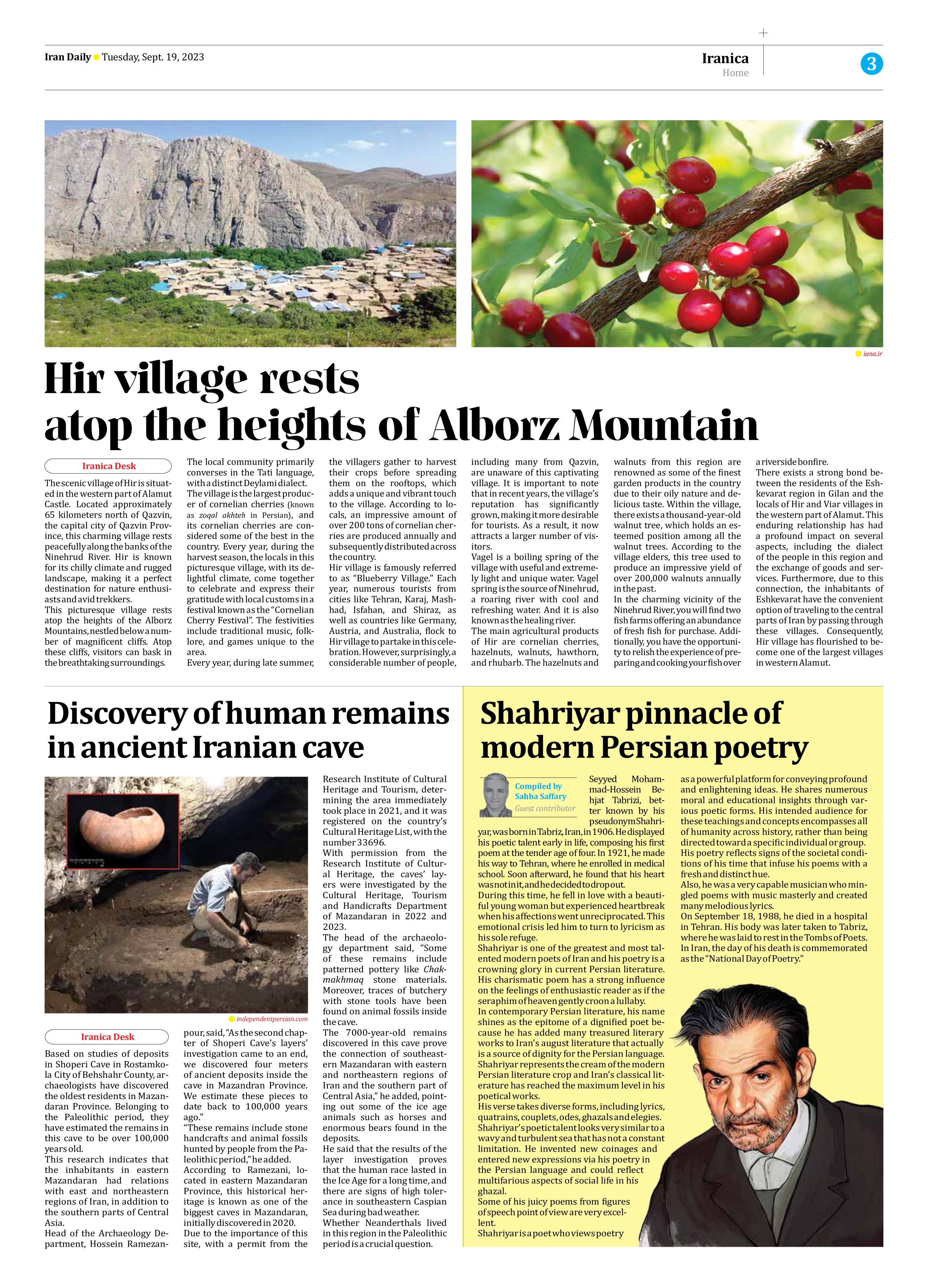
Shahriyar pinnacle of modern Persian poetry
Compiled by Sahba Saffary
Guest contributor
Seyyed Mohammad-Hossein Behjat Tabrizi, better known by his pseudonym Shahriyar, was born in Tabriz, Iran, in 1906. He displayed his poetic talent early in life, composing his first poem at the tender age of four. In 1921, he made his way to Tehran, where he enrolled in medical school. Soon afterward, he found that his heart was not in it, and he decided to drop out.
During this time, he fell in love with a beautiful young woman but experienced heartbreak when his affections went unreciprocated. This emotional crisis led him to turn to lyricism as his sole refuge.
Shahriyar is one of the greatest and most talented modern poets of Iran and his poetry is a crowning glory in current Persian literature. His charismatic poem has a strong influence on the feelings of enthusiastic reader as if the seraphim of heaven gently croon a lullaby.
In contemporary Persian literature, his name shines as the epitome of a dignified poet because he has added many treasured literary works to Iran’s august literature that actually is a source of dignity for the Persian language. Shahriyar represents the cream of the modern Persian literature crop and Iran’s classical literature has reached the maximum level in his poetical works.
His verse takes diverse forms, including lyrics, quatrains, couplets, odes, ghazals and elegies.
Shahriyar’s poetic talent looks very similar to a wavy and turbulent sea that has not a constant limitation. He invented new coinages and entered new expressions via his poetry in the Persian language and could reflect multifarious aspects of social life in his ghazal.
Some of his juicy poems from figures of speech point of view are very excellent.
Shahriyar is a poet who views poetry as a powerful platform for conveying profound and enlightening ideas. He shares numerous moral and educational insights through various poetic forms. His intended audience for these teachings and concepts encompasses all of humanity across history, rather than being directed toward a specific individual or group.
His poetry reflects signs of the societal conditions of his time that infuse his poems with a fresh and distinct hue.
Also, he was a very capable musician who mingled poems with music masterly and created many melodious lyrics.
On September 18, 1988, he died in a hospital in Tehran. His body was later taken to Tabriz, where he was laid to rest in the Tombs of Poets. In Iran, the day of his death is commemorated as the “National Day of Poetry.”







